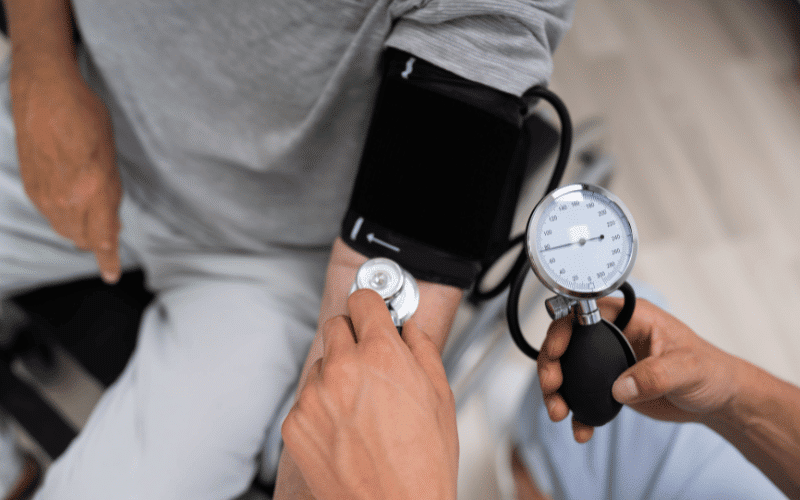8. Changes in Blood Pressure: A Cardiovascular Consequence

When discussing peripheral neuropathy, one symptom that might not immediately spring to mind is fluctuations in blood pressure. Yet, it’s a symptom that has been reported by individuals with this condition, and it’s not as mysterious as it first seems. The key to understanding this symptom lies in unraveling the role the nervous system plays in cardiovascular regulation.
Our bodies are a marvel of biological engineering, maintaining a steady internal environment despite external changes. One aspect of this internal balance or “homeostasis” is the regulation of blood pressure.
You might be surprised to learn that your nervous system plays a crucial role in this process, specifically a component of the peripheral nervous system called the autonomic nervous system (ANS). The ANS handles many of the body’s automatic functions, including heart rate, digestion, respiratory rate, salivation, and yes, blood pressure.
When peripheral neuropathy enters the scene, it can cause damage to the ANS, disrupting its ability to regulate blood pressure. But what does this look like in real life? How does a person with peripheral neuropathy and disrupted blood pressure regulation experience this symptom? The manifestation of this symptom can be quite variable.
Some individuals might experience a condition known as orthostatic hypotension. This refers to a sudden drop in blood pressure upon standing up from a sitting or lying position.
The usual response to standing is a slight increase in blood pressure to counteract gravity and ensure that enough blood reaches the brain. However, when the ANS is damaged, this compensatory mechanism can fail, leading to dizziness or even fainting. People with orthostatic hypotension might find that they feel unsteady or lightheaded upon standing, particularly if they rise quickly.
On the flip side, some individuals might experience spikes in blood pressure. This can occur due to disruptions in the various feedback mechanisms that usually keep blood pressure within a healthy range. (8)